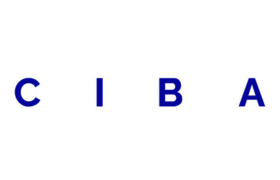- EY Survey, Future Consumer Index, tracks consumer behavior and sentiment across five markets
- The pandemic has created four new consumer behavior trends
- 42% of consumers believe the way they shop will fundamentally change
- 54% of consumers say they would be more willing to share their personal data more available if it helped to monitor and track an infection cluster
Overall, 42% of respondents believe that the way they shop will fundamentally change as a result of the COVID-19 outbreak. When it comes to brands and products, 34% of consumers indicate that they would pay more for local products, 25% for trusted brands and 23% for ethical products.
The four segments reflect how consumer behavior can relate to age groups, family or employment status. These are:
- Cut deep: These consumers are mainly more than 45 years old and have seen the biggest impact on their employment status. Almost a quarter have seen their jobs suspended, either temporarily or permanently. 78% of them are shopping less frequently, while 64% are only buying essentials. 33% feel that brands are far less important to them in the current climate.
- Stay calm, carry on: These consumers do not feel directly impacted by the pandemic and are not changing their spending habits. Just 21% of them are spending more on groceries, compared with 18% that are spending less.
- Save and stockpile: This segment shows particular concern for their families and the long-term outlook. More than a third (36%) are now spending more on groceries, while most are spending less on clothing (72%) and leisure (85%).
- Hibernate and spend: Primarily aged 18-44, these consumers are most concerned about the impact of the pandemic. However, only 40% of this segment say they are shopping less frequently. And while 42% say the products they buy have changed significantly, 46% of them say brands are now more important to them.
Five new segments may emerge as consumers move beyond the pandemic
The four segments identified could morph into five very different ones as the crisis abates. For example, the Index currently suggests that over time, most consumers in the “Save and stockpile” segment will migrate to two new segments: “Remain frugal” and “Cautiously extravagant.” These new consumer segments, detailed in the Index, could emerge post-COVID-19 and be summarized as: “Keep cutting” (13.1%), “Stay frugal” (21.7%), “Get to normal” (31.4%), “Cautiously extravagant” (24.7%) and “Back with a bang” (9.1%).
Consumer attitudes to privacy and purpose are changing
Over the last two years, EY teams have been modeling future scenarios as part of the FutureConsumer.Now program. One of these scenarios was based on the impact of a hypothetical global pandemic and indicated that consumers could adopt more open attitudes to privacy and sharing personal data. Indeed, the EY Future Consumer Index finds that 54% of consumers would make their personal data more available if it helped to monitor and track an infection cluster.
The Index also finds that health care providers are regarded as the most authoritative organization, with 47% of consumers indicating that they trust them completely, compared to governments (28%), brands (17%) and media companies (16%).
Another FutureConsumer.Now scenario model showed that consumers could view time, talent and natural resources as equally precious, with traditional notions of status receding, replaced by purpose and social good. This is supported by the Index, in which 33% consumers strongly agree that they will re-evaluate the things they value most as a result of the pandemic, while more than a quarter say they are already paying more attention to what they consume and what impact it has.
Commenting on the research findings, Charalambos Constantinou, Partner and Head of Advisory Services of EY Cyprus, observed: “COVID-19 is drastically transforming consumer behavior. Some of the changes may be temporary, while others are here to stay. Companies that were finding it hard to follow changing consumer behaviors before the pandemic will have to struggle now to keep up and respond to specific segment needs. The EY Future Consumer Index Survey provides a perspective on the changing consumer behavior and helps consumer-facing companies to understand and adapt to the changing consumer needs, preferences and expectations”.
Over the coming months, the EY Future Consumer Index will provide regular longitudinal indicators and perspectives on which changes are likely to be temporary reactions to the COVID-19 crisis, and which point to more fundamental shifts. More countries will be included as the analysis continues. The latest analysis is available here













